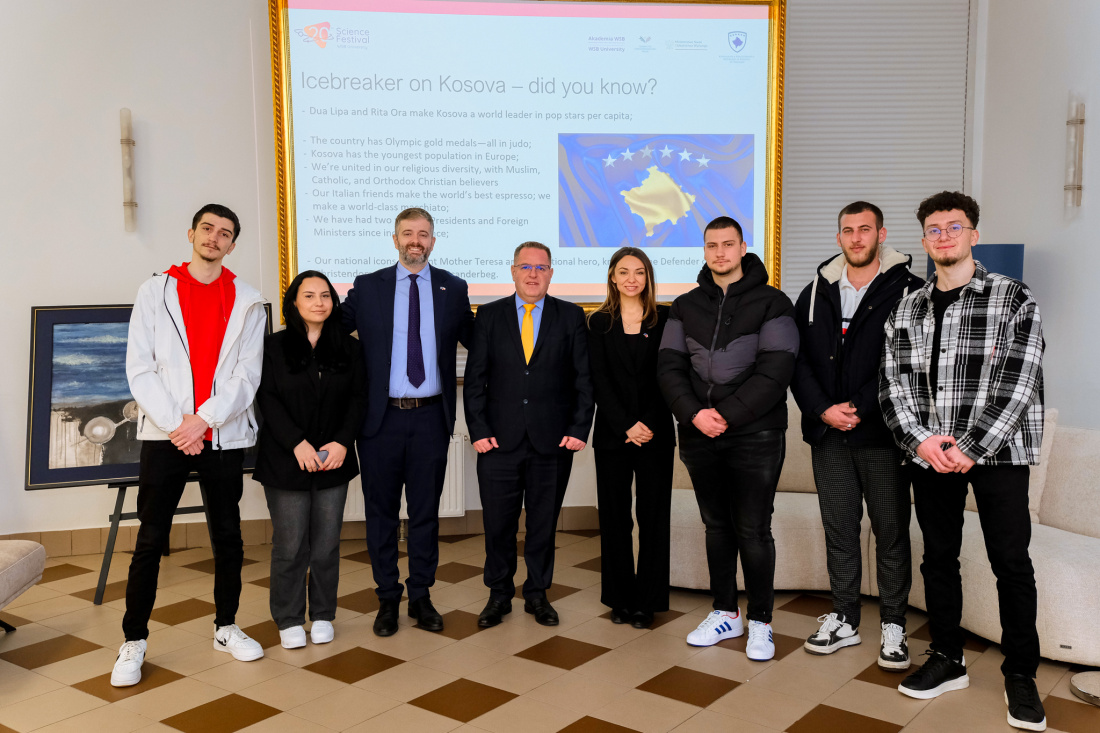- Student
- Student
- News
- Business School
- Doctoral School
- International Dean’s Office
- International Cooperation Office
- Academic Career Office
- Academic Sports Association
- Library
- Student Groups
- Internships
- Electronic Examination Center
- Scholarship office
- Finance Department
- Your Stay in Poland
- Academic Schedule
- The Centre for People with Special Needs
- Alumni and Students Association
- Personal Student Profile
- Support Zone
- Virtual University
- Contact
- Individual Study Plan
- Admissions
- Admissions
- Research
- University
- Erasmus+
Data
20.03.2024
Tech for good - Day 3 of the 20th Science Festival

Speakers from various fields shared their knowledge and experience, demonstrating how modern solutions can support humanity in its quest for a better future.
The third day of the 20th edition of the Science Festival, entitled "Tech for good - technology and sustainable development", focused on the relationship of new technologies to ecology, education and social aspects of sustainable development. Speakers from various fields shared their knowledge and experience, demonstrating how modern solutions can support humanity in its quest for a better future.
The day began with a presentation by Sabina Cieśla and Andrzej Gniewkowski on environmental reporting and the impact of the European Union's new climate policy mechanisms on businesses and consumers. The speakers emphasized the importance of companies' responsible approach to sustainability. Wojciech Emerla took attendees into the world of artificial intelligence applied to automotive battery systems, presenting its possibilities in the design, use and optimization of battery charging in electric vehicles. George Ionescu, PhD., in his presentation "Are we saving the world? The Economics of Sustainable Development," focused on the relationship between economic practices and sustainable development, analyzing how current efforts are contributing to the achievement of global sustainable development goals. Rui Alexandre Castanho, PhD., presented Sustainable Development Strategies for Peripheral Areas, highlighting the importance of territorial accessibility and connectivity in the context of cross-border cooperation and territorial integration in Europe. Karol Jędrasiak, PhD., Eng.,discussed the use of VR technology in education, presenting its practical applications in various fields, from medical simulation to vocational training. Prof. Boguslaw Sliwerski, PhD. took up the topic of "School Revolutions", pointing out the need for changes in the structure and organization of the educational process in order to adapt it to new educational challenges. A presentation by David Jurczynski, MSc., Eng., on the use of artificial intelligence to analyze satellite data and monitor carbon monoxide levels on Earth showed new possibilities for environmental protection and pollution management. Drilon S. Gashi emphasized the role of the ICT sector as a driver of economic growth and a tool for sustainable development, highlighting the potential benefits for Poland and Kosovo.
Assoc. Prof. Michał Rusinek, PhD., a professor at the Jagiellonian University, took the audience on a journey through the contemporary Polish language, exploring the issues of word borrowing and changes in the language under the influence of various cultural and social factors. The day ended with an inspiring speech by Mariusz Szczygieł, who shared his thoughts on finding inspiration in journalism, talking about his experiences, travels and fascination with the Czech Republic.
